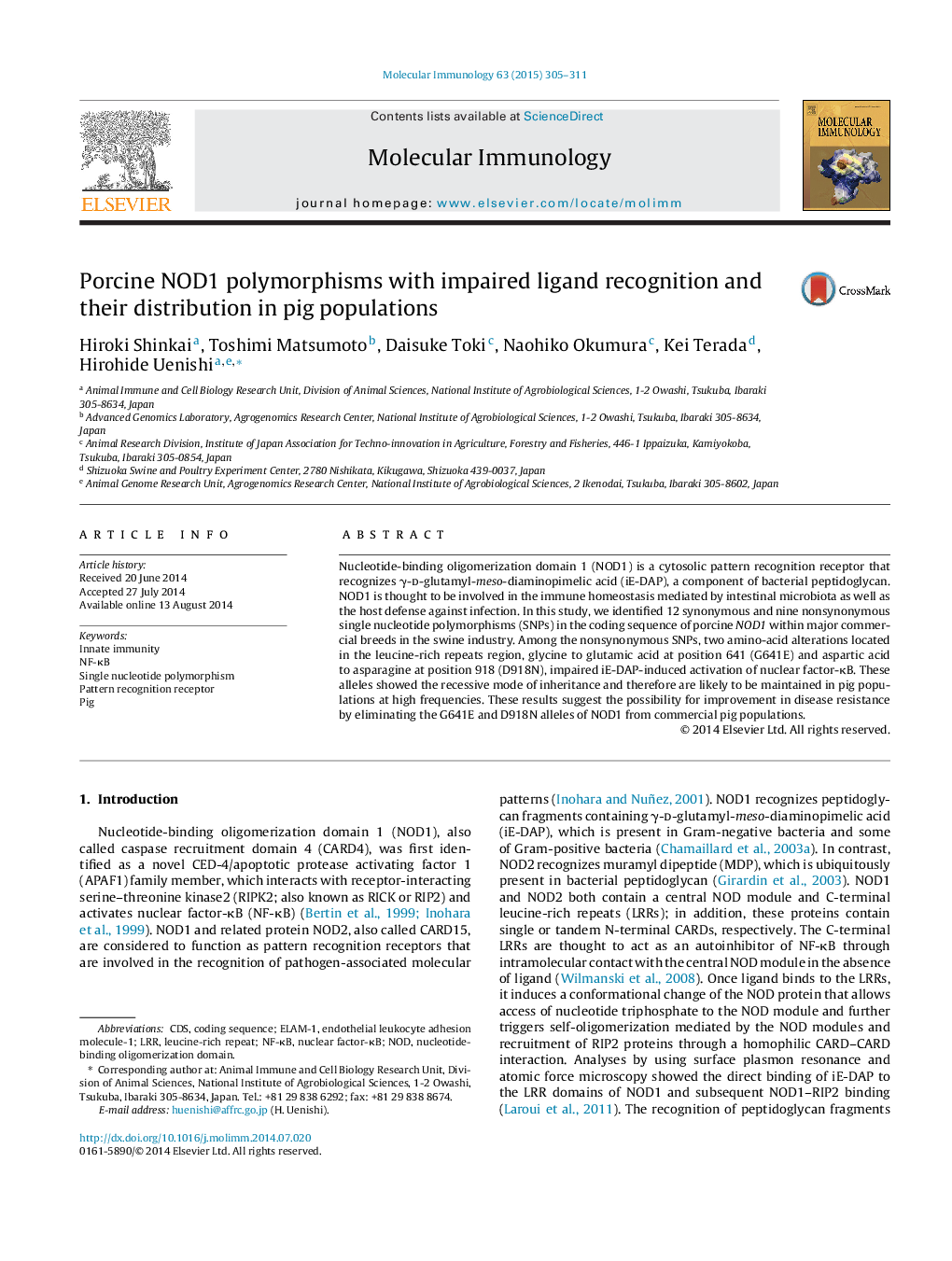| کد مقاله | کد نشریه | سال انتشار | مقاله انگلیسی | نسخه تمام متن |
|---|---|---|---|---|
| 2830715 | 1163750 | 2015 | 7 صفحه PDF | دانلود رایگان |

• Nine nonsynonymous SNPs were detected in porcine NOD1.
• Two nonsynonymous SNPs of porcine NOD1 had decreased response to ligand.
• The SNPs in porcine NOD1 were prevalent in modern commercial pig breeds.
• These SNPs might be used in pig breeding to increase disease resistance.
Nucleotide-binding oligomerization domain 1 (NOD1) is a cytosolic pattern recognition receptor that recognizes γ-d-glutamyl-meso-diaminopimelic acid (iE-DAP), a component of bacterial peptidoglycan. NOD1 is thought to be involved in the immune homeostasis mediated by intestinal microbiota as well as the host defense against infection. In this study, we identified 12 synonymous and nine nonsynonymous single nucleotide polymorphisms (SNPs) in the coding sequence of porcine NOD1 within major commercial breeds in the swine industry. Among the nonsynonymous SNPs, two amino-acid alterations located in the leucine-rich repeats region, glycine to glutamic acid at position 641 (G641E) and aspartic acid to asparagine at position 918 (D918N), impaired iE-DAP-induced activation of nuclear factor-κB. These alleles showed the recessive mode of inheritance and therefore are likely to be maintained in pig populations at high frequencies. These results suggest the possibility for improvement in disease resistance by eliminating the G641E and D918N alleles of NOD1 from commercial pig populations.
Journal: Molecular Immunology - Volume 63, Issue 2, February 2015, Pages 305–311